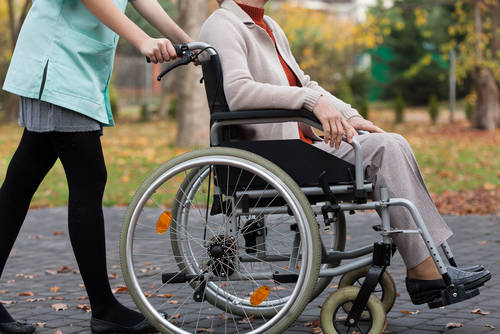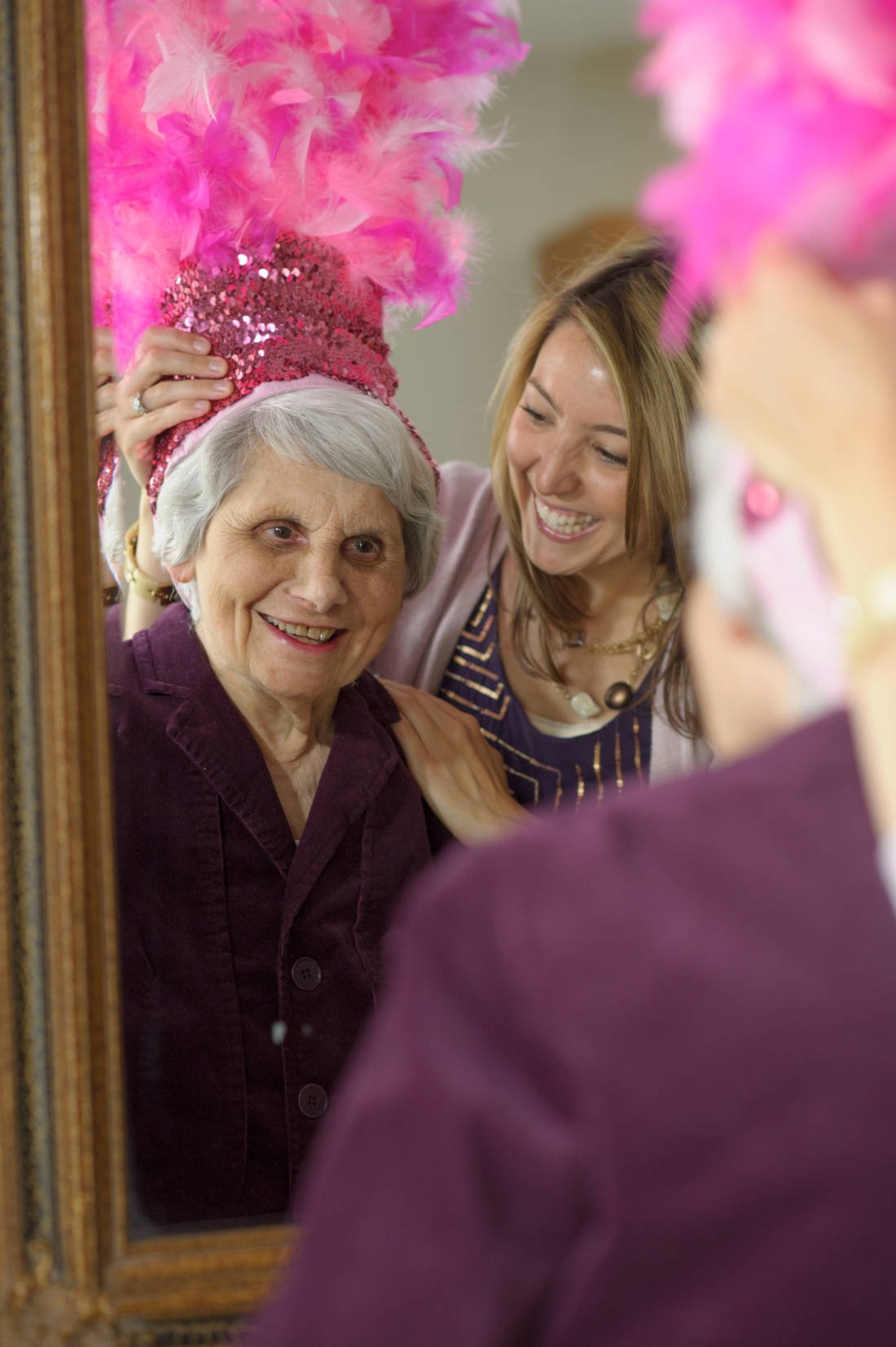Mobility Matters: Helping Your Aging Loved One Remain Mobile
assisted living | caregiver tips | Aging & Caregiving
 While loss of mobility is a common part of the aging process, it also represents a significant threat to the wellbeing of aging parents.
While loss of mobility is a common part of the aging process, it also represents a significant threat to the wellbeing of aging parents.
Caregivers can promote health, safety, and overall quality of life for their aging loved ones by implementing preventive measures for mobility issues.
Understanding the Issue
The ability to move around naturally declines as the body ages. Common issues, which contribute to mobility problems, include muscle and joint weakness, pain, and neurological conditions.
While mobility issues may seem mild at first, they can become debilitating over time, causing everything from unsteady walking, to difficulty sitting and standing, to trips and falls.
Treating Physical Obstacles
Unsafe home environments lead to the majority of falls for older adults. Not only can trips and falls cause injuries and further limit mobility, but they can also result in death in some situations. Conduct a safety check to ensure that your aging loved one's home has adequate lighting and is free of tripping hazards. Pay careful attention to bathroom safety precautions, as this is where most accidents occur.
If an occupational therapist or nurse visits the home, ask for help in identifying hazards and as well as areas for potential improvement.
Proper, well-fitting footwear is also essential. Seek out sturdy shoes with low heels, rubber soles and arch support. Avoid high heels, sandals, clogs and slippers as these may slip off. Choose Velcro instead of laces for easy dressing as well as to avoid the potential hazard of untied shoe laces.
The Importance of Activity
Even if a fall has never occurred, the fear of falling can cause inactivity and corresponding health issues in older adults. By encouraging physical activity, you can help your loved one enjoy better balance and greater confidence. Not only will your parent grow stronger, but he or she may also develop the enhanced ability to avoid falls.
Learning how to recover from a fall is as important as prevention. A physical therapist can offer advice on the best techniques for getting up from the ground. Also, check in with local community centers and hospitals to learn about fall prevention courses and/or exercise programs for seniors.
If you are concerned that your aging parent is at risk for falling when living alone, look into a medical alert service, which can send help at the touch of a button. Family members may also want to consider discussing a move to a senior living community with their loved one. With apartments and living space designed to prevent falls and staff available 24 hours a day, a senior living community can provide much needed peace of mind.
Communication Counts
Your loved one’s physician plays a valuable role in maintaining mobility. Certain medical conditions -- such as arthritis, poor eyesight and impaired hearing -- can affect mobility, as can some medications. Treating these issues can enhance mobility with minimal intervention. Be sure to inform the doctor or nurse about any mobility issues and ask about walking aids designed to help with mobility, such as canes and walkers.
It’s also important to keep the lines of communication open with your aging loved ones; acknowledging and understanding their fears can help you better support their needs. And keep in mind: while praise and positive reinforcement are helpful, too much help can interfere with a senior's sense of independence.
Key Takeaways
- While mobility issues are a natural part of aging, caregivers can offer proactive help.
- Promote a hazard-free home environment by conducting a home safety evaluation.
- Encourage participation in individual or group physical activity to promote strength, balance and confidence.
- A medical alert service and/or a senior living community can provide valuable peace of mind for seniors who live alone.
- Consult with your aging loved one’s primary care physician as mobility issues can be caused by medical conditions and certain medications.
- Encourage aging loved ones to share their concerns in order to foster a sense of self-worth and independence.
About Marissa Salvesen
My journey into the world of senior living began when I started working for United Methodist Homes in 2010. Starting as an Activities Director at one of our-winning assisted and independent living communities and then transitioning to Marketing and Promotions Manager for UMH, I now work as the Manager of Mission Development, fostering the Mission and Values of our organization. I love sharing stories about the many ways we build meaningful relationships and enrich the lives of those we serve, and am proud to be part of building UMH’s 140-year legacy of caring. Wondering what makes our communities such special places to live and work? Connect with me and find out!

Our Blog is a 2016 Platinum Generations Award Winner! The Generations Award is an annual international competition for excellence in senior marketing recognizing professionals who have communicated to the 50+ Mature Markets.



